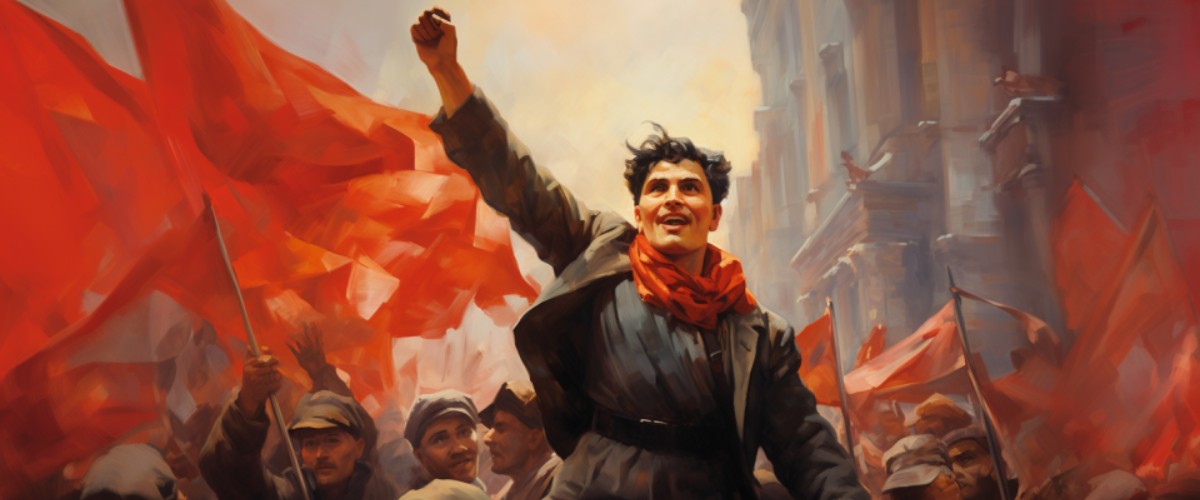The Russian Revolution of 1917 stands out as one of the pivotal moments in world history, engendering a seismic shift not only within the domestic boundaries of Russia but also across the global political landscape. The episodic series of uprisings and insurrections led to the dismantling of the Tsarist autocracy, paving the way for the establishment of a socialist government, underpinned by Marxist principles, and inevitably influencing international relations and political structures.
Background
- Preceding Conditions:
- Widespread social and economic discontent
- Massive losses and hardship due to participation in WWI
- Famine and poverty affecting the vast majority of the population
- Key Personalities:
- Nicholas II: The last Emperor of Russia, whose policies were often seen as detached and inept
- Vladimir Lenin: Leader of the Bolshevik Party, primary architect of the October Revolution
- Leon Trotsky: Instrumental in the organization and execution of the Bolshevik seizure of power
Major Happenings
- February Revolution:
- Public unrest and strikes leading to the abdication of Nicholas II
- Establishment of the Provisional Government and Petrograd Soviet
- October Revolution:
- Armed insurrection in Petrograd led by Bolshevik forces
- Fall of the Provisional Government and ascension of the Bolsheviks to power
- Civil War:
- Ensuing conflict between the Red Army (Bolsheviks) and the White Army (anti-Bolshevik forces)
- Foreign intervention, further complicating the socio-political landscape
Immediate Outcomes
- Social and Political Repercussions:
- Proclamation of the Russian Soviet Federative Socialist Republic
- Widespread redistribution of land, wealth, and resources
- International Implications:
- Termination of Russia’s involvement in WWI through the Treaty of Brest-Litovsk
- Commencement of an ideological and geopolitical schism between socialist and capitalist nations
Long-term Impact
- Political Evolution:
- Formation and consolidation of the Soviet Union in 1922
- Global spread of communist ideology, influencing numerous anti-colonial and revolutionary movements worldwide
- Cold War:
- Ideological and geopolitical confrontation between the Soviet Union and the United States, shaping the latter half of the 20th century
- Space Race:
- Soviet accomplishments, such as launching the first artificial satellite, Sputnik, and sending the first human, Yuri Gagarin, into space
Conclusion
In retrospect, the Russian Revolution (1917) undeniably imprinted an indelible mark upon global history, setting forth a cascade of events that would delineate political, economic, and social ideologies for decades to come. It beckons contemplation regarding its resonating implications, particularly as the globe navigates the complexities of modern geopolitics, warfare, and economic disparities. The enduring echoes of the revolutionary ideas and conflicts emerging from 1917 Russia continue to foster dialogues about governance, equity, and the perpetual tension between varying ideological doctrines in contemporary society.








